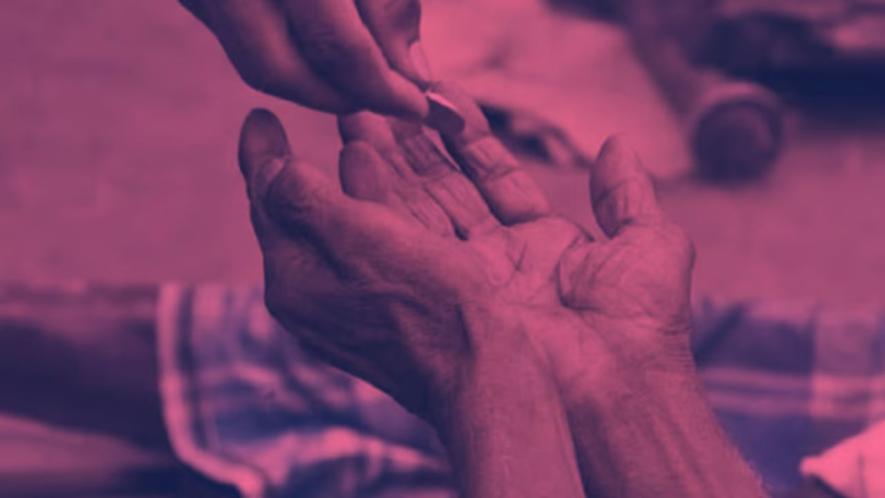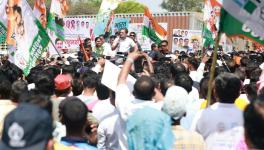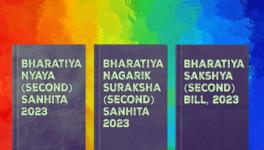Is Indore’s Ban on Begging Constitutionally Justifiable?

“The measure of a society is how it treats its most vulnerable members.”— Mahatma Gandhi
The Indore administration recently ordered a complete ban on begging and almsgiving from January 1, 2025.
Indore is one of the 10 cities identified under the SMILE initiative by the government of India to make the cities beggar-free. The scheme advocates the rehabilitation, counselling and sustainable development of beggars.
What is the constitutionality of the Indore administration's Order on banning begging in the city? Can banning an act that is done for survival align with principles of justice, equality and dignity enshrined in the Indian Constitution?
Understanding Indore’s begging and almsgiving ban
In a surprising move, the Indore administration recently ordered a complete ban on begging and almsgiving in the city from January 1, 2025. In this Order, it is mentioned that people begging or giving alms to beggars will attract strict action. First information reports (FIRs) will be filed against them and fines will also be imposed on them.
This move comes under the broader measure of the Union government’s SMILE initiative, which aims to make 10 Indian cities beggar-free, Indore being one of them.
The administration claims that it is a collective action against begging gangs and syndicates that operate in the city. The district magistrate of Indore said that the police have taken action against these gangs since the beginning of last year, in some cases the gang members were found to be earning more than ₹75,000 per week. It also says that it is promoting rehabilitation programmes for those involved in these activities.
Critics of the policy argue that it violates the basic principles of our Constitution such as the fundamental rights that are guaranteed to every citizen by criminalising poverty and compassion.
The provisions of the Constitution appear to be at odds with the Order as it does not deal with the root causes of begging such as discrimination, unemployment and economic justice [mentioned under Article 39(b), 39(c) and Article 46 in the Directive Principles of State Policy that the State should promote economic equality]. Rather, the Order risks sidelining vulnerable sections of society, which is diametrically opposite to the essence of our Constitution.
As the city moves forward with the policy, it raises a critical question of balancing welfare programmes with basic constitutional rights.
Indore is one of the 10 cities identified under the SMILE initiative by the government of India to make the cities beggar-free. The scheme advocates the rehabilitation, counselling and sustainable development of beggars.
Threat to fundamental rights and legal issues
The begging legislation in India is formulated under the Bombay Prevention of Begging Act,1959, which aims to provide individuals with the proper expertise to become self-sufficient and lower their reliance on others.
Twenty-two states, including Madhya Pradesh, have adopted this Act. It defines begging as a socio-political concern, suggesting a long-term reform. In the present case of Indore, the act of begging was forbidden through an Order that can be considered a flawed approach.
Begging is a voluntary act of providing or taking offerings in the form of food or money and cannot be classified as a crime. Begging stems from the socio-economic conditions of a person, which cannot be removed or forcibly eliminated through public Orders or bans.
Individuals suffering from miserable conditions use begging to voluntarily express their plight through words or actions, seeking assistance. Such communication of activities is worthy of protection under Article 19(1)(a), which ensures freedom of speech and expression.
By imposing a ban, the government not only deprives individuals of their means of income or public assistance but also infringes upon Article 19(1)(g), which guarantees the right to practice any profession as it restricts acts like almsgiving for income. It further violates Article 21, which protects the right to life and personal liberty as begging and almsgiving are voluntary acts that neither harm nor restrict others.
A complete ban on begging excludes the poor from society based on their socio-economic conditions, violating Article 14 (equality before the law) and Article 15 (prohibition of discrimination).
It also reflects a colonial-era mindset rooted in laws such as the European Vagrancy Act of 1824 and the Bombay City Police Act of 1860, which prohibited and criminalised all forms of begging. These unreasonable actions reveal an elite prejudice against beggars, as they aim to hide their presence instead of tackling the structural reasons for poverty and homelessness.
Begging, to a significant extent, is rooted in socio-political affairs related to poverty and homelessness, highlighting the failures of the government to provide necessary facilities such as housing, employment opportunities and other essentials.
“The poor are not poor simply because they are less human or because they are physiologically or mentally inferior to others whose conditions are better off. On the contrary, poverty is most of the times either a direct or an indirect result of the failure of society and the State of establishing fairness and equity as the basis of its social and economic relation,” as stated by the Supreme Court.
Similarly, the UN Human Rights Council's guiding principles on human rights emphasise that poverty-based exclusion must be treated as a human rights violation urging solutions on a structural basis, not criminalisation.
As the city moves forward with the policy, it raises a critical question of balancing welfare programmes with basic constitutional rights.
Complexity in balancing public Order and individual rights
The difficulty that democratic societies face as to how to maintain public order without infringing constitutional rights takes center stage in the recent case of Indore where they have imposed a blanket ban on begging.
The government is arguing that it is taking collective action against begging syndicates and ensuring public order. It aligns with the government’s greater vision of making cities beggar-free. However, the provisions of the policy raise significant questions about its constitutional validity and the rights of the weaker section of society.
Any law made by the government should align with the provisions of the Constitution. The government can apply reasonable restrictions in order to maintain public order and restrictions must be just, fair and reasonable.
In this case, the administration’s Order of imposing a blanket ban on begging and almsgiving is clearly at loggerheads with Article 21 of the Indian Constitution, which guarantees the right to life and dignity. The administration’s goal of prioritising urban aesthetics over human dignity is rendering the law ultra vires of the Constitution.
Achieving an appropriate level of balance between public order and individual rights is a necessity to make humane and inclusive policy within the framework of justice and equality. Any approach that dismisses the above considerations will lead to erosion of the democratic fabric by side-lining the very people it seeks to protect. This calls for a compassionate yet constitutional approach that makes policies that are appropriate for public welfare.
Analysing the mechanism of the ban and constitutional provisions
The hollow ban on begging by a public order or by local administration grants excessive power to police and often results in rigid enforcement. This could lead to a situation of extreme actions taken by authorities such as forcefully eliminating beggars from streets or wrongfully arresting non-beggars which include labourers or a person merely sleeping or sitting by the roadside, who may be arrested under the guise of controlling beggary.
These harsh enforcement or implementation Orders neglect the constitutional principles underscored in Part III and Part IV of the Constitution, which require the State to safeguard life, ensure fairness and provide resources for the welfare of all citizens.
These Orders fail to distinguish harmful activities, such as aggressive begging and child trafficking, for begging and other circumstances of genuine need, undermining the vision of a Constitution for a more humane and equitable society.
As a result, detaining innocent beggars and imposing hefty fines on almsgivers can be deemed as manifestly arbitrary. For many, begging is a last resort to subsist. It is a symptom of a deeper societal issue— a disease that confirms that a person has fallen through society's construct net.
The hollow ban on begging by a public order or by local administration grants excessive power to police and often results in rigid enforcement.
It reflects issues such as lack of education, inadequate social protection, caste- and ethnic-based discrimination, landlessness or other disabilities. By making beggars invisible, the government exposes its failure to fulfill its constitutional duties and the State simply cannot abdicate its responsibility to ensure a dignified existence for its people and exacerbate their plight by detaining or arresting individuals barely surviving on minimal means.
In Ram Lakhan versus State, the court recognised a “defense of necessity” for situations where individuals have no alternative but to beg and classified beggars into four distinct categories, emphasising the need for nuanced policies. Instead of blanket bans, the government should identify and target only harmful forms of begging while allowing for those in genuine need.
European countries such as Belgium, France and Spain exemplify such a nuanced approach. They prohibit specific types of begging, including child trafficking, forceful begging, or activities driven by ulterior motives.
This method differentiates between harmful and non-harmful acts, reducing the likelihood of police abuse or harm by incorporating discretion into begging laws. However, local Orders lack this sophistication even when the government provides robust homeless services, beggars still face financial challenges in meeting their daily expenses. Recognising these realities is crucial for formulating fair and effective policies.
The way forward
The State should prioritise long-term reforms over short Orders by the local administration, which are prone to abuse by local authorities. Comprehensive anti-beggary laws should be introduced and should take into account the economic strength, poverty and social-political condition of an individual.
These laws must include rehabilitation for innocent beggars, adopting a non-punitive approach except in cases of criminal or aggressive begging.
Subsistence activities that are vital for survival should not be criminalised. Strict action should focus only to an extent of identifying helpless beggars and improving their socio-economic status by providing them with the necessary skills, education and employment opportunities.
These laws must include rehabilitation for innocent beggars, adopting a non-punitive approach except in cases of criminal or aggressive begging.
Non-governmental organisations should be involved in drafting legislation, as they best understand the circumstances driving individuals to beg. The legislature must expedite getting the Abolition of Begging and Rehabilitation of Beggars Bill, 2018 to decriminalise begging.
Laws in Spain focused on a multidisciplinary approach that emphasised on training of police officers and public prosecutors to keep cooperation with civil societies.
Similarly, in Austria, round tables were organised to discuss the grievances of migrant beggars and begging families. Even in Germany (Munich), only classified forms of beggary are prohibited, such as organised and aggressive beggary. In 2013, the European Federation of National Organisations Working with the Homeless (FEANTSA) published A Report on Criminalisation of homelessness in Europe in which it suggests some good measures such as strategic litigation to reverse criminalisation measures and the recommendations for policy drafters to address underlying reasons of homelessness and begging.
Get the latest reports & analysis with people's perspective on Protests, movements & deep analytical videos, discussions of the current affairs in your Telegram app. Subscribe to NewsClick's Telegram channel & get Real-Time updates on stories, as they get published on our website.
























